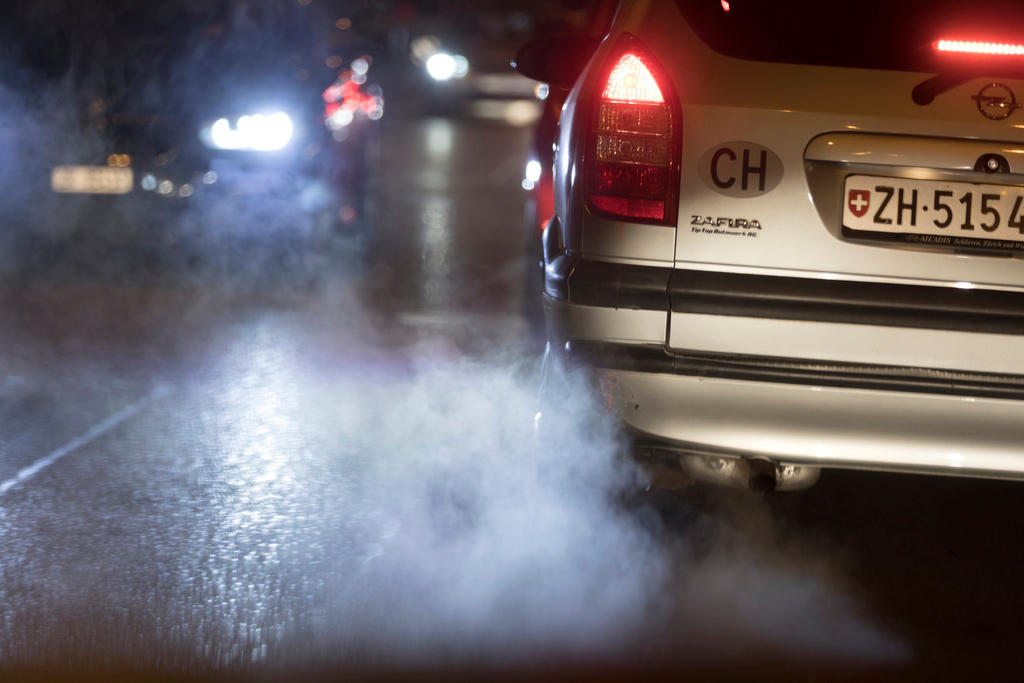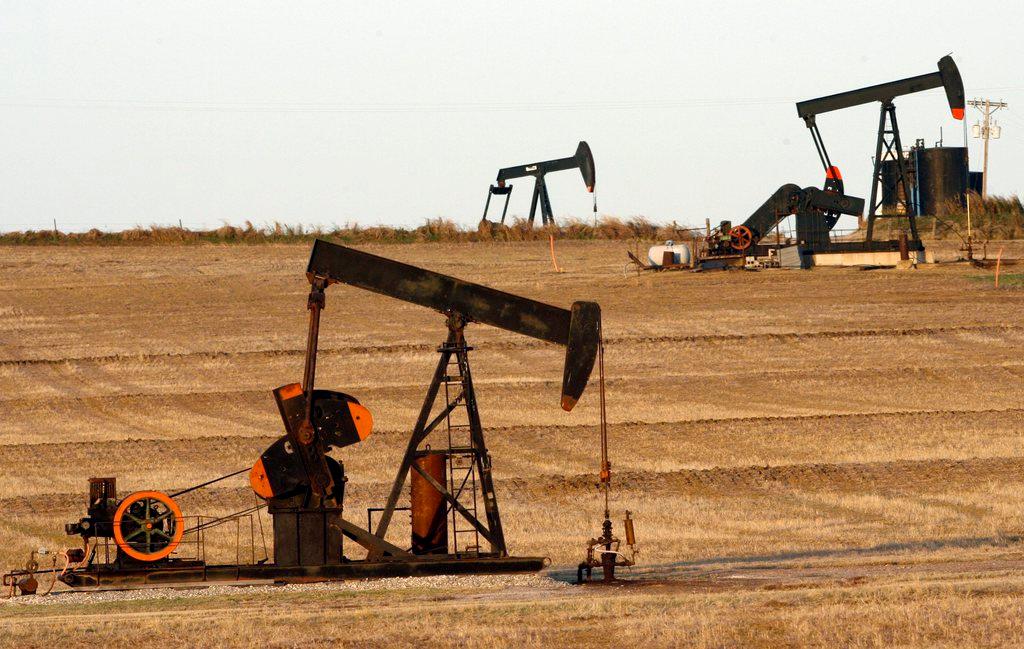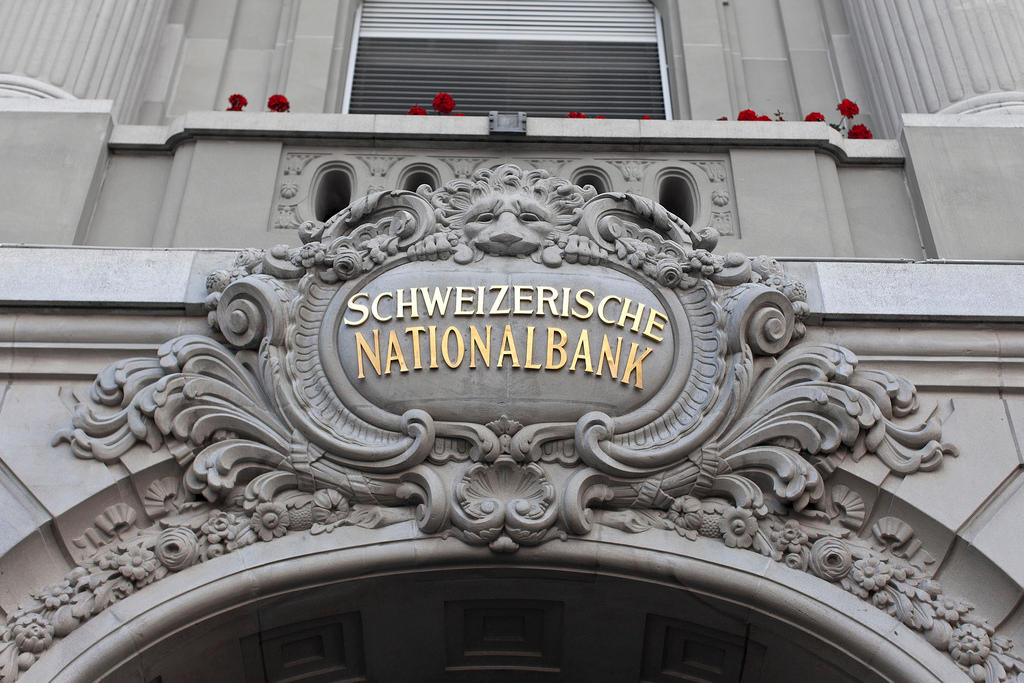
Swiss National Bank must rethink emissions-heavy investments

Climate Alliance Switzerland has called for a “stress test” of the Swiss financial system, and released recommendations for protecting it as well as the climate.
The association, representing more than 70 organisations across Switzerland, relayed on Tuesday a studyExternal link (in German) by one of its members, Artisans de la TransitionExternal link (French), along with a series of recommendationsExternal link to the SNB.
The study shows that annual carbon dioxide (CO2) emissions produced as a result of Swiss National Bank (SNB) equity investments are equivalent to those of the entire nation, and that the bank’s investment policy “support[s] a development path leading to an increase in temperature between 4 and 6 degrees Celsius”.
This temperature estimate was calculated by comparing the technology mix in the SNB’s equity portfolio with different climate warming scenarios developed by the International Energy AgencyExternal link. According to Climate Alliance SwitzerlandExternal link Managing Director Christian Lüthi, this doesn’t mean that the SNB itself would be the root cause of such a temperature increase; rather, “their investments contribute to…and are in line with this kind of warming scenario”.
Lüthi said these findings “clearly go against” the emissions goals set by the 2015 Paris Climate Agreement, which was ratified by Switzerland and limits global warming to 2 degrees Celsius.

More
Swiss National Bank asked to curb fossil fuel investment
“The study shows that the National Bank’s investment policy effectively destroys Switzerland’s efforts to protect the climate and improve the situation of the poorest countries,” said Markus Keller, Vice President of Fossil-free.chExternal link (German), which produced the German-language translation of the Artisans de la Transition study.
Doubling down on renewables
Burning fossil fuels like oil, gas and coal emits greenhouse gases like CO2, and therefore, the SNB’s practice of financing the development of new fossil fuel reserves has to change, the Climate Alliance said in a press statementExternal link.
For example, according to the most recent Artisans de la Transition study, the SNB is “under-investing” in renewable energy technologies, noting that 11% of the value of its shares in electricity production are for companies targeting new renewable energies, compared to 73% for fossil power production. Staying below the Paris Agreement’s climate warming limit of 2 degrees Celsius would require at least a doubling of investment in renewables, it concluded.
Financial and environmental stability
The Climate Alliance’s recommendations,External link formulated with the participation of economics, finance, environment, and climate experts at several Swiss universities, are aimed at showing “how the SNB can invest in the existing mandate in a climate-friendly manner and fulfil its task of preserving financial stability by taking climate risks into account”.
Specific recommendations include conducting a “climate stress testExternal link” of Swiss insurance companies, banks, and pension funds and publishing measures to contain risks, as well modifying investment guidelines to “exclude investments in companies that systematically cause serious climate damage”.
“The Paris climate agreement cannot be implemented without the decarbonisation of the National Bank,” said Lüthi.
Climate instability is only one half the threat, he added, emphasising that “the later the SNB takes effective measures, the more sudden there may be a crisis in the Swiss financial system.”
Indeed, another finding of the Artisans de la Transition study was that the SNB could have improved its financial performance by CHF20 billion ($20.2 billion) over the last three years, if it had divested the CHF7.4 billion used to finance carbon-intensive companies and invested it in more “climate friendly companies”.
General meeting protest
The Climate Alliance published its most recent study to apply pressure on Switzerland’s central bank, ahead of its annual general meeting on Friday. Activists and members of the climate organisation also staged a demonstration outside the meeting premises in Bern.

In compliance with the JTI standards
More: SWI swissinfo.ch certified by the Journalism Trust Initiative










































You can find an overview of ongoing debates with our journalists here . Please join us!
If you want to start a conversation about a topic raised in this article or want to report factual errors, email us at english@swissinfo.ch.